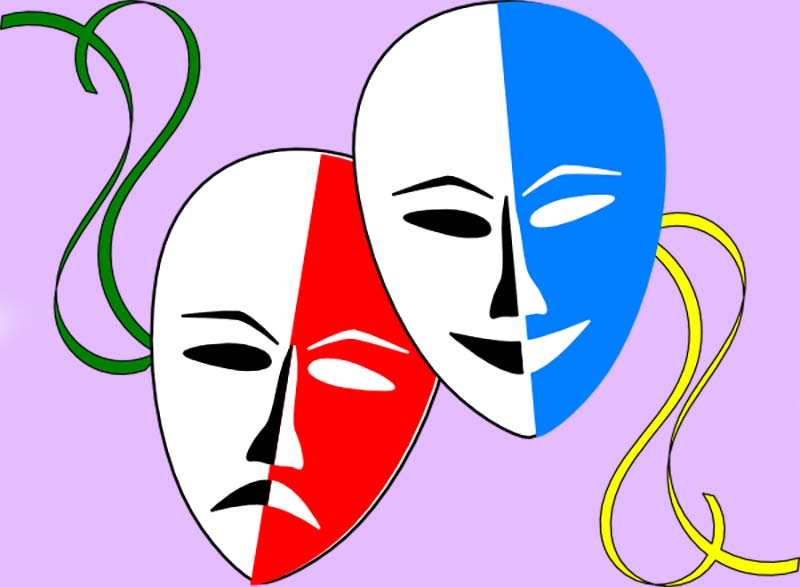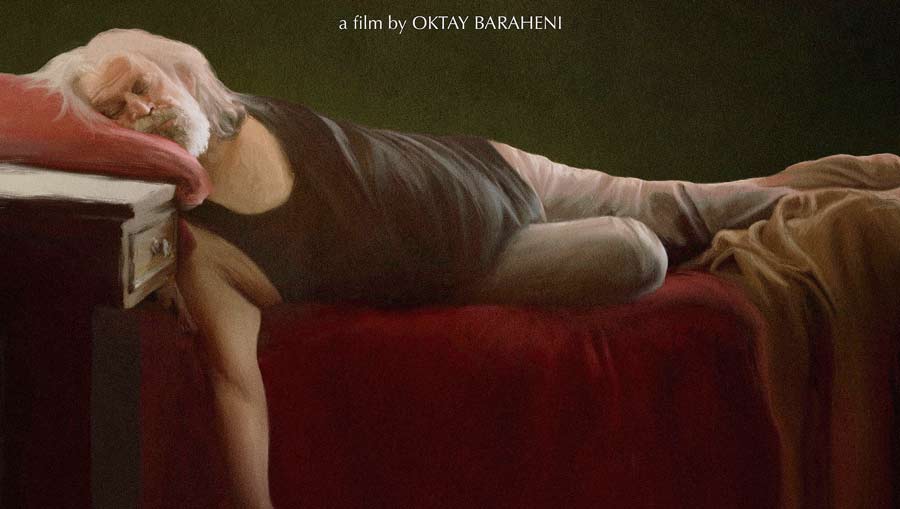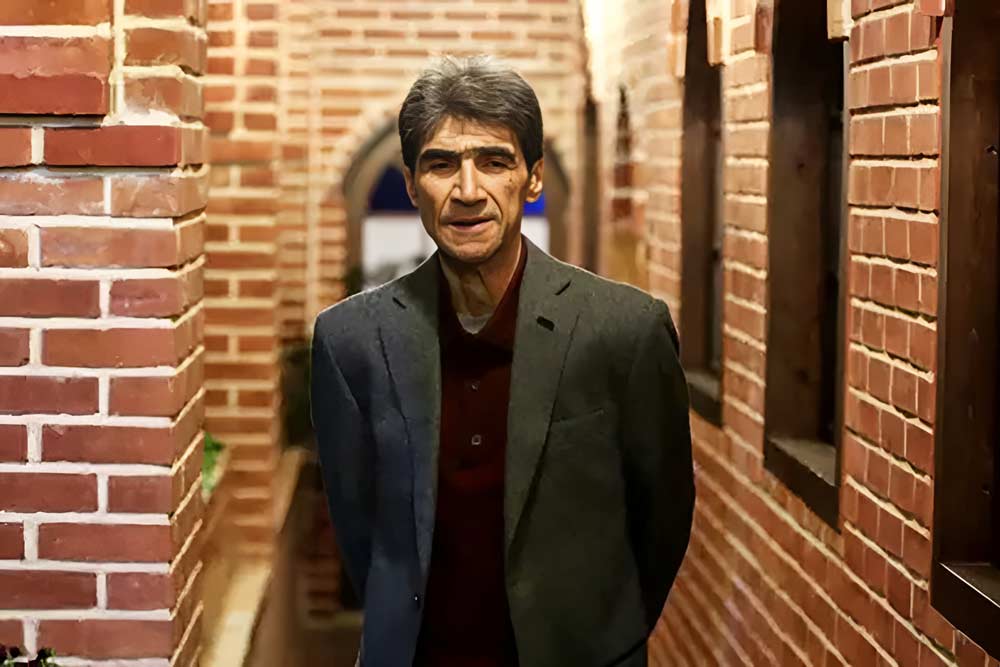Voice and speech for actor

Art theater is collective and teamwork, and popular actors rely on collaborative work. Acting, despite the imagination of many people, is very laborious and arduous. They cannot delegate their responsibilities; They cannot be absent during rehearsals and performances, and they cannot work without cooperation. Most importantly, they can not shy away from the burden of personal practice and daily study.
Actors are social human beings who have to interact with themselves and their roles. The body and the voice must move in harmony with each other, as when the actor moves and talks with others. These points make the acting profession and art both attractive and very difficult.
Inexperienced and sometimes experienced students and performers when performing the role, complex verbal performance that requires design and training of expression, fear of not delivering sound in a large hall, payment of personality traits, different verbal patterns, the issue of timing and the need for sound flexibility, They face many problems. In any case, the reader of these lines, as well as the actor, is constantly confronted with questions about these problems, and this article seeks to provide answers to enhance his theoretical knowledge of sound and audio expression, as well as Provide him with practical training materials. Even many experienced voice teachers as well as talented actors on the stage remind us that the actor needs to know some things about singing. Because singing is one of the best ways to train your voice. Reading strengthens the sense of pitch, makes attention to the rhythm the queen of the mind, increases the awareness of the rhythm, and causes mentality and clarity.
The actor must learn and act in such a way as to reach the soul of the spectator. The actor’s job is to motivate and keep himself alive and alert, not for himself but for the spectator. Speaking is part of the imagination, and if the actor does not understand what he is saying, or where he is speaking and with whom, regardless of whether he is making a right or wrong sound, his speech will not be heard.
Another important point that the actor should think about is to try to engage the audience with what he is saying, not to make him aware of the techniques. There is a difference between showing creativity through the application of skills, and the presentation of skills and techniques.
Sound is like an instrument that must be played. The actor needs to be able to play this instrument both fast and slow, and be both technical and emotional in doing so, but there is no room for debate as to which one takes precedence over the other. A fan is a means of conveying the truth of a feeling or content as best as possible. And if the actor thinks that one of the two is in priority, he has made a mistake.
The actor needs to learn the technique and create the conditions to evoke different emotions as an exercise in acting. One of the aims of this article has been to provide constructive and efficient practice materials, to design them in such a way that both of these, namely technique and emotion, can be experienced by the reader. If the singer is an actor, then this text is about him, about his voice. The voice and speech exercises presented here will range from simple to complex, basic to advanced. You need sound power as an actor. If you can feel this need in yourself, you will realize the need to train your voice. Because in this case, you bring a huge opportunity to your field of acting and as a result, you increase the ability to perform the production in which you are looking for a company. Learning this particular technique is difficult, but at the same time enjoyable.
Think about the essence of acting art to achieve good acting standards and be able to review and critique the common acting in today’s stage and video productions in our country.
We all know Stanislavsky well, he was not only a theorist but also a distinguished technician who set out to bring truth and beauty into the general realm of theater. “The main difference between acting and other arts is that other artists may create something when they are inspired,” he said. But the stage artist must be his master and master of inspiration and must know how to call it when performing, this is the basic secret of our art.
“Without this, even the most complete techniques and the greatest gifts will not work.” The actor is the link between the playwright and the spectator. His voice is the means by which the playwright’s work becomes objective. And through it, thoughts and feelings flow. Hence, the actor has a certain responsibility towards the playwright, the director, other actors and the audience. The words of the play are, in a sense, an integral part of every actor’s performance. Actors with different physical characteristics and different interpretations may play roles. But still the words are what the playwright wrote. However, the words themselves tend to convey a variety of meanings depending on how they are uttered by the actor. This is how acting brings the actor’s need for the art of sound, and when it comes to technical need, the voice and expression are clearer and more important than any other art.
The actor’s speech training should be such as to enable him to master his voice according to the pitch, tone, pitch, timing and clarity of the words, because he is able to interpret different characters by the current nature of his voice. He and the amount of ability he can use is limited. To overcome this limitation, one can only resort to sound training and expression in a correct and scientific way. Contemporary Canadian playwright Judith Thompson states in the preface to her short play “Pink”: “I believe that sound is a door that takes us not only into the soul of an individual, but also into the soul of a nation and its culture. “The spirit of a class, a community, a race leads.”
Most acting students live with the sounds they have, a sound that rarely changes, this sound can be made better or worse. But since this sound is considered the actor’s musical instrument, it is his spectrum to strive to play it correctly. Student and novice actors should be aware of the demands of their art, which are intelligence, intelligence, imagination and training, and be aware of the basic areas of research, namely music, painting, writing and reading.
Exercises, especially breathing exercises – inhale and exhale – must be learned properly. The actor has not practically learned these two basic steps properly from the beginning and will still need a coach to guide him.
When you start, start with a relaxed mind and a body without cramps. The first piece of advice regarding body comfort (2) in any discussion of expression and acting training is that the contracted body causes the viewer to contract. In addition, the contraction will cause problems for the person to produce sound. In any case, go through the steps related to body comfort, warming up the vocal organs, breathing, placing the voice, delivering the voice, first using the exercises provided, and then enter the stage of practicing the vocal organs, and then work on the texts. Get started.
For this stage, select pieces from the tragedies and comedies of Greece and Rome as a starting point for working with the text, and as suggested, follow the rehearsals with selected pieces from the plays of the British and French Renaissance, and finally pieces from Examine the dramatic texts of the twentieth century in light of the changes that the language of theater has undergone. Poems and prose pieces from past and present Iranian poets and writers are also good choices to focus on sentence structure, meanings and sound materials, away from personality concerns.
These examples of poems are as important as theatrical scenes because they create their own epic, mystical and lyrical atmosphere by using special words, and the transmission of these spaces through sound can be an experience similar to the audio transmission of stage action. Through this gradual practice and training, the expression of the spoken and written abilities of the Persian language and the musical abilities of this language, which is known as a symbol of our nationality and national culture, can be manifested, and this is a task that should not be done by those involved in performing arts. Forget it.
Historical landscape of sound and expression
In order to study the principles and rules that have long been a beacon for actors so that they can speak on stage and use their rhetoric to create a kind of desirable and definite communication, it is first necessary to pay close attention. Let us turn to the science of the meanings of expression (or rhetoric) in order to better recognize the long journey that the category of voice and expression, audio transmission, has taken in the history of the play and beyond, and the changes that have taken place.
The meanings of technical expression are practical and based on real preparation and rules with general theories about what is noticeably happening in the speech process and how people react to different ways of expression, muscular, aesthetic, and emotional.
The meanings of expression for the ancients in general were the art of speaking and writing. Aristotle believed that the meanings of technical expression are used by all human beings because all human beings are involved in debate and criticism. They are suspected and defended. Some randomly, and some in a very conscious and measured way. As we know, Aristotle in his book The Art of Poetry refers to the meanings of expression in order to study how to express thought verbally. Much of Aristotle’s theory of oratory has been applied equally to both prose and poetry by Aristotle and other critics, including Quintilian and Cicero. Aristotle himself was a sharp critic of the educators of semantics because they focused on the technical details of the sermon, both in public and in the courts.
They set aside the essence of their subject matter, which was to explore ways of persuasion, which deliberate or political discourse was a sublime form of their art. The sermon was a kind of book that sermons were written. It may be said that Socrates dealt with a kind of teaching on a more philosophical basis in his school. This teaching is implicitly a response to Plato’s accusations, because it emphasized that the meanings of expression are art, and art useful.
Aristotle elaborates on the meaning of expression as follows: Truth and justice are stronger than their opposites, and if those who defend them fail because of wrong decisions, they will be condemned. Because they have ignored the meanings of the expression. Even the most accurate knowledge will not enable anyone to persuade a group, because when talking to them one has to argue with them according to general assumptions. There is no shame in defending oneself against other fists, why should one be ashamed to defend oneself against words? Certainly, the ability to speak can be useful against evil intentions. Philosophers also saw similarities between the narrator and the orator, including Socrates, who describes the profession as “understanding the poet’s thought as well as words, because the narrator must interpret the poet’s thought to his audience.” It was believed that the poet transmits his inner glow to the narrator and the narrator in turn transmits it to the Ganesh listener.
In Gregory’s treatise, Plato turns his attention to the new teachers of prose writing, namely the speakers and scholars of modern science. In this treatise, he examines his profession and occupation (board). At the end of this discussion, it is concluded that if the art of prose writing is considered a profession, then it must include special knowledge. But what is this knowledge? Gregory tries to explain the meanings of expression, and finally says that the meanings of expression are the art of persuasion. Socrates then distinguishes between two types of persuasion: “One is based on knowledge and teaches something, and the other merely leads people to believe in something and does not require any knowledge in the persuasive person.” “The latter is the persuasion of the orator, and it is very important because the orator addresses the issue of right and wrong.”
The meanings of the classical expression had five parts as follows: invention, organization of rhetoric, memorization, audio transmission.
In the first stage, the orator or orator examined the subject and in the second stage, he arranged the details, in the third stage, he determined a certain verbal form for it, and in the fourth stage, he memorized it. And finally conveyed it to its audience. For centuries, the use of the meanings of expression and rhetoric, the stage of rhetoric, that is, finding the right verbal form for speech, has been more controversial than other stages. Because the speaker was always trying to show his personal character to the audience by using a decorated style. It is difficult to understand why the meanings of speech and rhetoric in ancient Greece reached this level. It is believed that: Because reading and writing were difficult and specialized, Greek society relied on oral expression. As a result, the meanings of expression played a pivotal role in the education of this society. A society in which, after learning to read, write, mathematics, music, and gymnastics, boys were sent to the School of Meaning of Expression at the age of fourteen to be taught the theoretical foundations of speech and to acquire practical skills in the field. Possessing such a skill was a sign of intelligence and a source of pride and identity in this aristocratic society who generally believed that speech was a sign of wisdom.
It can be said that the principles of effective speech on stage originated from 400 BC with Aristotle, who explained the art of poetry and the meanings of his expression, the basics of the form and functions of tragedy in theater. He sees the meanings of expression as a skill by which we understand what, in our interpretation, will be relevant to a subject in order to gain the listener’s belief. This point was of special importance to Aristotle, not only in terms of eloquence, but later in contemplating the whole process of the effect of speech on the audience in later civilizations, and in later periods in the field of drama. Aristotle meant the belief in the proper design of emotions. He points out that the choice of words and mastery of sound and rhythm should be commensurate with each other. And this suggests that Aristotle was well aware of the issues surrounding gaining the audience’s trust through rhetoric. In other words, the content in the relevant context was the best guide to the form or method of speaking. One of the best audio transmissions for the actor originated from the action of the meanings of expression, the present in which you want the sound, the expression of the face, the appearance and the appearance of the body to be in harmony with the text and the content and to reveal its character.
The influence of the meanings of expression and good voice in ancient Greece was very significant. This was partly due to the grandeur of the open-air theaters and the punctual nature of the audience. And partly because of the poetic and operatic nature of the Greek tragedies that you want the actor to be able to sing and be able to sing. Actors were expected to speak well, and use their tone of voice to convey the character’s emotions. Great actors, such as Spous, listened to the famous sermons of their time to improve their transmitters.
All of this was there so that the audience could hear the words of the great theaters throughout.
* Sources and references are available in the editorial office of Artmag.











